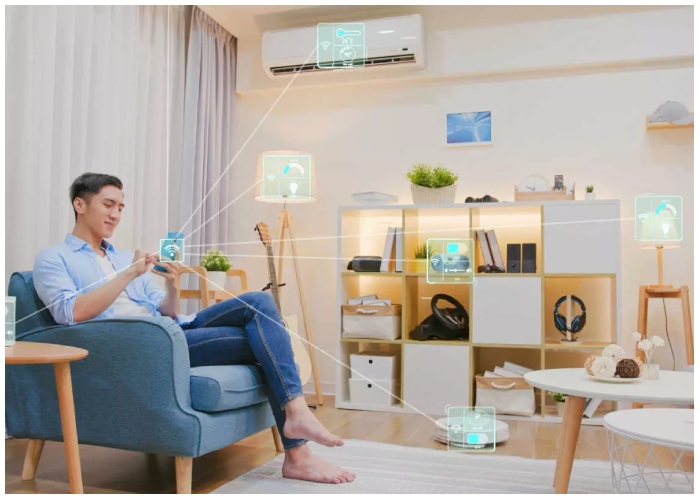Just a few years ago, artificial intelligence felt reserved for futuristic films or top-tier tech companies. Fast-forward to 2025, and AI has found its way into our kitchens, bedrooms, and even laundry rooms—quietly reshaping how we live. No longer a novelty, intelligent technology now plays a practical role in simplifying everyday tasks and improving household management.
From automated meal prep to voice-guided lighting, AI at home has become the new standard. Whether you’re a work-from-home professional, a busy parent juggling schedules, or someone aiming to simplify life, smart home tools powered by AI are helping people reclaim time, reduce effort, and increase comfort like never before.
How AI Gadgets Are Transforming Domestic Life
Innovative, AI-driven tools are more accessible and capable in 2025 than ever before. Some of the most popular home upgrades now include:
- Intelligent vacuum cleaners that generate custom cleaning routes, steer clear of pet zones, and operate on your preferred schedule.
- Nutrition-focused apps that learn your eating habits, suggest meal plans, and sync with your calendar to minimize grocery waste.
- Refrigerators with smart sensors that monitor expiration dates, restock essentials, and recommend recipes based on what’s inside.
- Cleaning guidance apps that offer step-by-step instructions and adaptable routines to help maintain tidiness with minimal stress.
- Hands-free controls for lighting, climate, and entry systems—boosting security and efficiency with simple voice or app-based commands.
What’s Trending Now: AI That Knows You
In 2025, home technology is becoming more refined—not just smarter but more personalized and visually seamless. Here are the latest innovations making waves this year:
- Interactive bathroom mirrors that assess your skin’s condition and recommend personalized skincare routines or beauty products.
- Closet-organizing AI tools that review your wardrobe digitally, suggest outfits, build packing lists, and create seasonal capsule collections.
- Financial assistants that track purchases, categorize expenses, and notify you of forgotten subscriptions to help with money management.
- Smart recipe finders that turn leftover ingredients into full meal ideas with prep instructions and nutritional information.
These technologies do more than automate—they elevate daily life by easing mental load, sparking creativity, and promoting healthier habits.

Why Smart Homes Are Becoming the New Normal
Artificial intelligence at home isn’t here to replace your instincts—it’s here to strengthen them. By automating low-priority decisions, AI lets you concentrate on what truly needs your attention. Benefits include:
- Less mental clutter: AI filters choices, preventing burnout from tiny, constant decisions like what to wear or cook.
- Smoother routines: Daily chores like vacuuming or budgeting can run in the background while you focus on more fulfilling tasks.
- Stronger security: From automated locks to motion alerts, AI helps create a safer environment for you and your loved ones.
- Greener habits: Energy-monitoring appliances and waste-reducing systems support eco-friendly living with little effort.
Things to Consider Before Going Fully Smart
Despite the convenience, it’s wise to think critically before handing over your routines to algorithms:
- Privacy concerns: Most AI systems collect behavioral data to improve performance. Always check what’s being shared and how it’s protected.
- Tech harmony: Choose compatible devices that work within the same smart ecosystem to avoid sync issues or duplicate features.
- Digital dependence: Relying on AI is helpful, but human judgment, awareness, and connection are still essential. Let technology support—not dominate—your lifestyle.
Artificial intelligence has shifted from novelty to necessity in the modern household. What once felt futuristic is now simply functional, from managing finances to planning meals or dimming the lights. AI makes your home feel more responsive—not robotic.
As this technology continues to evolve, integrating even a few intelligent devices can dramatically upgrade your space, routines, and mindset. In 2025, smarter homes aren’t just about convenience—they’re about living better, with less stress and more intention.